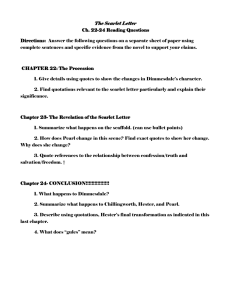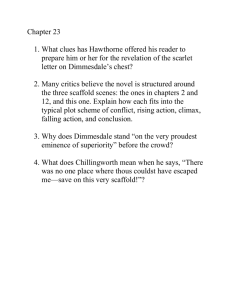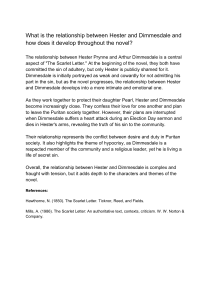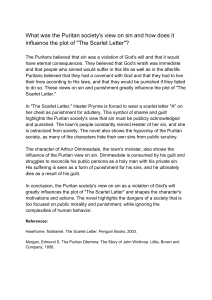What is the climax of The Scarlet Letter and how does it affect the outcome
advertisement
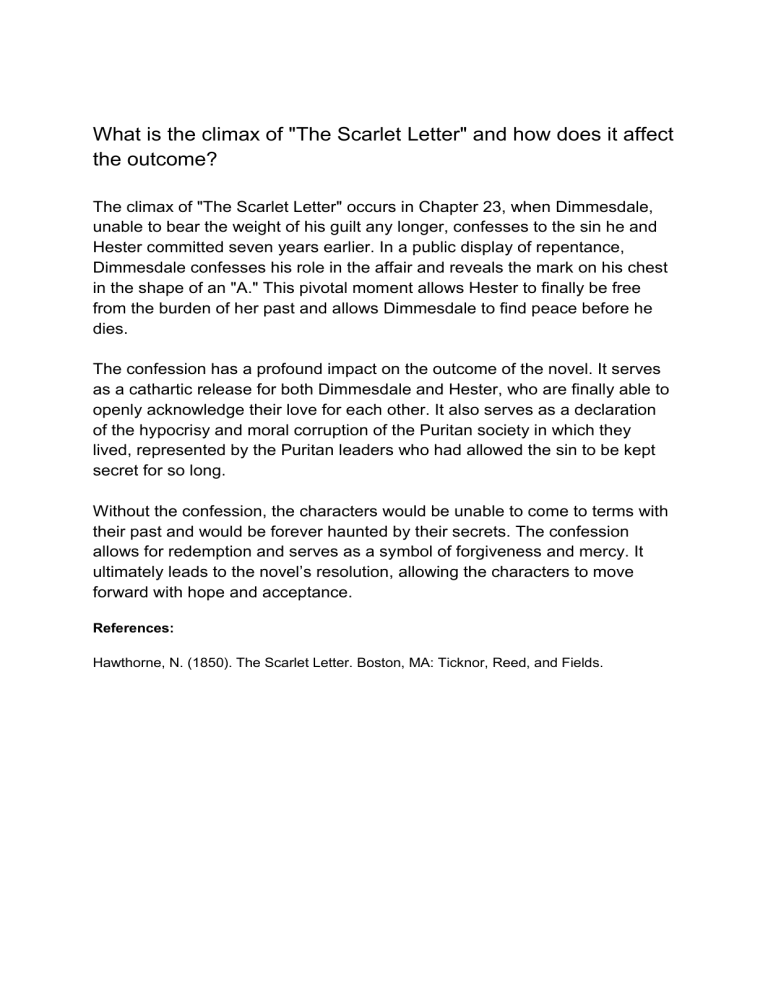
What is the climax of "The Scarlet Letter" and how does it affect the outcome? The climax of "The Scarlet Letter" occurs in Chapter 23, when Dimmesdale, unable to bear the weight of his guilt any longer, confesses to the sin he and Hester committed seven years earlier. In a public display of repentance, Dimmesdale confesses his role in the affair and reveals the mark on his chest in the shape of an "A." This pivotal moment allows Hester to finally be free from the burden of her past and allows Dimmesdale to find peace before he dies. The confession has a profound impact on the outcome of the novel. It serves as a cathartic release for both Dimmesdale and Hester, who are finally able to openly acknowledge their love for each other. It also serves as a declaration of the hypocrisy and moral corruption of the Puritan society in which they lived, represented by the Puritan leaders who had allowed the sin to be kept secret for so long. Without the confession, the characters would be unable to come to terms with their past and would be forever haunted by their secrets. The confession allows for redemption and serves as a symbol of forgiveness and mercy. It ultimately leads to the novel’s resolution, allowing the characters to move forward with hope and acceptance. References: Hawthorne, N. (1850). The Scarlet Letter. Boston, MA: Ticknor, Reed, and Fields.
